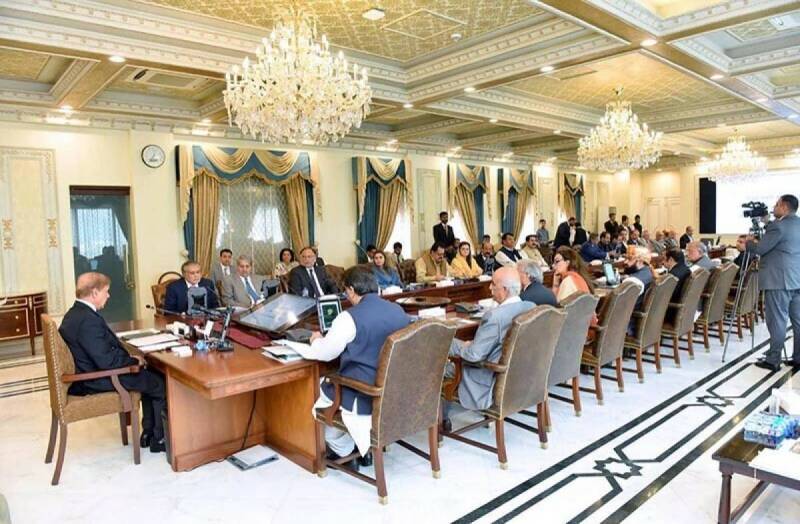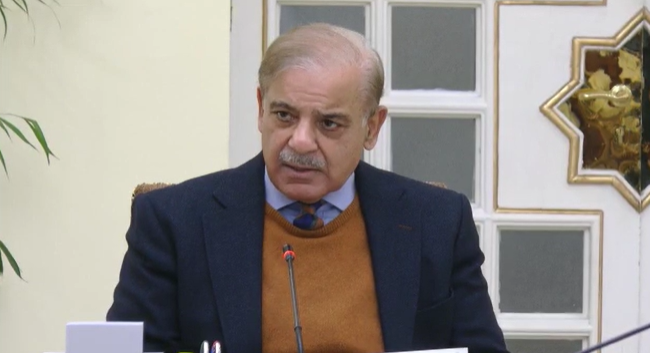PTBP Web Desk
The Cabinet Committee on Regulatory Reforms has been assigned a detailed and comprehensive set of Terms of Reference (ToRs), which outline its responsibilities and goals. The key ToRs are:
Legislative and Regulatory Reform: The committee will review, consider, and approve the legislative and regulatory reform process, referred to as the Regulatory Guillotine. This process is critical for the successful implementation of the Asaan Karobar Act, aimed at easing the procedural and regulatory burdens on businesses.
Ensuring Reform Diligence: The committee will ensure that the approved reform processes are implemented with diligence, while also gathering necessary evidence on the reviews conducted under this framework. This ensures accountability and transparency in the reform process.
Reform Prioritization: One of the committee’s key responsibilities is to approve the initial list of reforms that are deemed the most problematic. These reforms must be reviewed and actionable recommendations provided by December 25, 2024. This deadline sets a clear target for the committee, signaling urgency and commitment to improving the business environment.
Appeals Process: An essential function of the committee is to approve and oversee an appeals process, which allows relevant ministers to justify their positions against any reform proposals made by the Board of Investment. This provides a balanced mechanism to ensure that all reforms are thoroughly considered and that any objections are addressed transparently.
Decision on Challenged Reforms: Following the appeals process, the committee will make decisions based on the evidence provided. The committee will decide whether to approve or reject any reform recommendations that are challenged by ministers or other stakeholders.
Eliminating and Revising Regulations: The committee will review and approve recommendations made by the Board of Investment (BoI) to eliminate or revise existing legislation, regulations, and procedures. This also includes removing unnecessary licenses and approvals that complicate doing business in Pakistan. These decisions will then be forwarded to the Cabinet for final ratification.
Fast-Track Reform Implementation: One of the committee’s overarching goals is to take policy decisions that ensure the fast-tracking of reforms while maintaining compliance with legal provisions. This ensures that the reform process moves quickly without compromising the country’s legal frameworks.
Facilitating Investment: Beyond regulatory reform, the committee will also consider and approve any other proposals put forth by the Board of Investment that aim to ease the business environment and facilitate investment. This broad mandate allows the committee to address emerging issues and opportunities for improving the investment climate.
Monitoring Asaan Karobar Project Progress: A critical task for the committee is to monitor the overall progress of the Asaan Karobar Project. The committee will ensure that agreed-upon milestones are met, including the establishment and operationalization of a legal registry, which is expected to provide a more transparent and efficient business environment.
Assigning Additional Tasks: Finally, the committee has the authority to assign additional tasks to the Board of Investment or any other relevant body that relates to improving Pakistan’s business environment and investment climate. This allows the committee to remain flexible and responsive to changing economic conditions.
At the heart of these reforms is the Asaan Karobar Act, which is designed to simplify the regulatory framework for businesses in Pakistan. The Act aims to remove unnecessary barriers and bureaucratic hurdles, making it easier for businesses, both domestic and foreign, to operate in the country. By streamlining procedures and eliminating outdated regulations, the government hopes to attract more investment and stimulate economic growth.
This legislative effort aligns with broader global trends of regulatory reform, where countries seek to foster a more business-friendly environment to enhance competitiveness in the global market. For Pakistan, which has been struggling with slow economic growth, inflation, and a challenging investment climate, these reforms are seen as a critical step towards long-term economic stability.
To ensure the success of the reform process, the committee will closely monitor the implementation of its decisions and hold regular reviews. The establishment of a legal registry as part of the Asaan Karobar Project will provide a transparent system for tracking business registrations, regulatory approvals, and compliance. This will help reduce corruption and bureaucratic inefficiencies, both of which have historically been obstacles to business development in Pakistan.
Additionally, the Board of Investment (BoI), under the leadership of the committee, will be responsible for carrying out the reforms and providing regular updates to the Cabinet and the Prime Minister. This structured approach ensures that the reform process remains on track and delivers measurable results.




